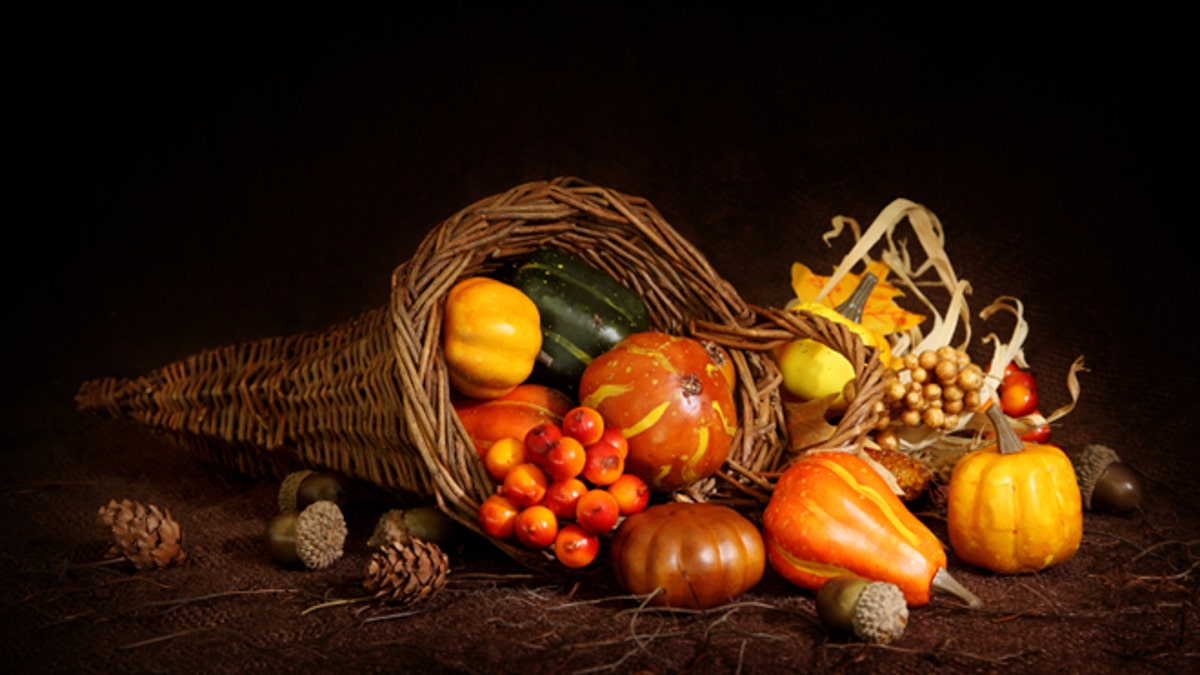
(iStock)
Tomorrow, as you celebrate the meal the Pilgrims ate with Indians, pause a moment to thank private property.
I know that seems weird, but before that first Thanksgiving, the Pilgrims nearly starved to death because they didn't respect private property.
When they first arrived in Massachusetts, they acted like Bernie Sanders wants us to act. They farmed "collectively." Pilgrims said, "We'll grow food together and divide the harvest equally."
Bad idea. Economists call this the "tragedy of the commons." When everyone works "together," some people don't work very hard.
Likewise, when the crops were ready to eat, some grabbed extra food -- sometimes picking corn at night, before it was fully ready. Teenagers were especially lazy and likely to steal the commune's crops.
Pilgrims almost starved. Governor Bradford wrote in his diary, "So they began to think how they might raise as much corn as they could ... that they might not still thus languish in misery."
His answer: He divided the commune into parcels and assigned each Pilgrim his own property, or as Bradford put it, "set corn every man for his own particular. ... Assigned every family a parcel of land."
That simple change brought the Pilgrims so much plenty that they could share food with Indians. Bradford wrote that it "made all hands very industrious, so as much more corn was planted than otherwise would have been."
We see this principle at work all around us today. America is prosperous because private property is mostly respected, and people work hard to protect what they own. China rose out of poverty only when the Communist rulers finally allowed people to own property and keep profits from it.
But wait, you say, didn't the Native Americans live communally? Isn't that proof that socialism and collective property work?
No. It's a myth that the Native Americans had no property rules. They had property -- and European settlers should have treated those rules with respect.
Native American property rules varied. There wasn't much point trying to establish private property in rocky hinterlands where no one traveled. But, writes Terry Anderson of the Property and Environment Research Center, "Private garden plots were common in the East, as were large community fields with plots assigned to individual families. Harvesting on each plot was done by the owning family, with the bounty stored in the family's own storehouse."
Today, however, many American Indians live in poverty. It's not because Native Americans are lazy or irresponsible. When Indians are allowed to own their own land, they prosper. The laws of economics are the same for all people.
I asked Manny Jules, chief of the Kamloops Indian Band for 16 years, why so many Indians are poor.
"Nobody chooses poverty," he said on my show. "We've been legislated out of the economy by the federal governments, both in the United States and Canada."
That sounds odd to people who know how much money governments spend to "care for" Indians.
"Well, by taking care of us, that means providing social welfare programs," says Jules. "The only way to break the cycle of poverty (is) real property rights."
The U.S. government, after killing thousands of Native Americans and restricting others to reservations, gave tribal governments control over Indians' lives, in collaboration with the government's Bureau of Indian Affairs.
Since then, no group in America has been more "helped" and "managed" by the federal government than Indians. Because of that, no group has done worse.
Homes on reservations are likely to lack electricity and indoor plumbing. There is serious alcoholism and drug abuse. A staggering number of American Indians are unemployed. Many commit suicide.
Jules says not being able to own your own land is part of the problem. "You can't borrow. You can't get a mortgage. You can't be bonded. There's nothing that you can have that'll allow you to be able to go to the bank on your own without the (government) minister co-signing that loan."
Tribal governments function about as badly as governments run by white people. They waste money, mismanage valuable resources and give sweetheart deals to crony businesses.
If we want to give people -- all people -- reason to celebrate this Thanksgiving, give them the proven formula for prosperity. Get government out of the way, and respect every individual's property rights.
